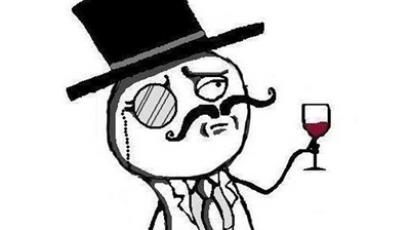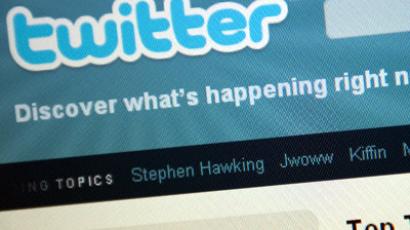Internet should not have gatekeepers or regulators – Steve Wozniak
Apple’s co-founder fears that freedom of information is under attack, with the internet controlled and regulated in unnecessary and harmful ways. RT talked to Steve Wozniak on a range of topics, from Wikileaks to Megaupload founder Kim Dotcom.
Steve Wozniak knew personal computers would change the world someday, even during his start at Apple, a company he co-founded with Steve Jobs in the early 70s. Decades later, though, he acknowledges that the journey has not been without obstacles.It has been nearly 40 years since Wozniak, now 61, started Apple out of a central California garage. At the time, today’s concept of the Internet was unheard of. In an exclusive interview with RT, though, Woz says he is happy with how things developed, even if regulators have gone about legislating technology in all the wrong ways.“The Internet, when it first came, it was a breath of fresh air. It was so free. Nobody owned the Internet space.Countries didn’t own it; they didn’t control it. It was worldwide. It was people to people. It was like we little people of the world all of a sudden had this incredible resource and we didn’t have to go through other people selling it to us and delivering it to us,” Woz tells RT. The Silicon Valley legend says that the openness of the Internet “has changed a lot” since then, in part of an array of laws introduced since home computers became more and more commonplace. And while he doesn’t dismiss that efforts from regulations have been at time in good intention, he says, “These were new laws that were just going to totally try to put up roadblocks to services that had other very good purposes in our life.”One person targeted particularly by these obstructions is Kim Dotcom, the founder of the now defunct file storage site Megaupload. “[W]hat Kim Dotcom ran is just a service that’s like a post office. He was the post office it was being mailed to,” Woz explains. Because that service was used to facilitate, allegedly, illegal material at times, Dotcom has since become the whipping boy of international governing bodies trying to make an example out of him in a crusade against piracy.“Why do you shut down the post office thinking that’s where the problem is? It’s not,” Wozniak explains.Wozniak recently met with Dotcom and says that, after talking with him, believes that the government’s case against him is made up of a string of bogus complaints. “The phony charges just indicate that they are doing everything they can to make the public think that they, the prosecutors, are in the right. But you don’t do phony things when you’re in the right. You have an open and shut case. No, they are having to go beyond the bounds of what’s right to try and convict him,” he says. “That’s what bothers me, is that if they want to convict you of something that you didn’t do, they have an awful lot of techniques to do it.”Wozniak adds that those labeled pirates and racketeers — like Dotcom — aren’t the only targeted online as of late, either. Free speech has been singled in on as well, and while Woz comes off somewhat divided on how to address the issue in his interview with RT, he suggests that the ongoing attempts to stifle Internet freedoms are something to be worried about. “I was brought up with the belief that the First Amendment was such a good thing. Every one of our Bill of Rights in the United States was so crucial to my heart in the way my dad taught me, but free speech meant you could say something bad about the president even, you could say something bad about your government. You had that right, and we were taught that you didn’t have that right in communist Russia. So I believe in that right very strongly,” he says.“I think that a lot of social interaction will be curbed,” Wozniak starts to say, but not before rephrasing his words. “Let me take that back. I fear it. I fear it will be [curbed]. That the gatekeepers, those that can turn on and off switches, allow certain things, disallow other things, allow who gets to send me data about a new movie rather than everyone having an equal say so of reaching me. Yeah I fear that very strongly. Especially net neutrality, issues like that.”Those matters have been brought particularly into the spotlight during the last year as whistleblowers such as Julian Assange and his WikiLeaks website have been hit with criticism from international governments who oppose the release of materials they’d rather reserve for private eyes only.“As far as WikiLeaks, I wish I knew more about the whole case. On the surface it sounds to me like something that’s good. The whistleblower blew the truth. The people found out what they the people had paid for. And the government says, ‘No, no, no. The people should not know what the people had paid for,’” Wozniak says.“Internet freedom is being interfered with in major ways and it shouldn’t,” he argues. “I think the Internet should have been considered from day one a country of its own that isn’t bound by any individual country’s laws. Maybe we could have had an Internet government. But it didn’t happen. Just like world government doesn’t happen. Space doesn’t belong to anyone, the moon doesn’t belong to anyone: these are really beautiful principles in life, and then as soon as a country figures out a way to get control of them it disappears.”Wozniak concludes that his take on the whole war against Internet freedoms is an optimistic one, yet acknowledges that the roadblocks are indeed still in the way. He suggests, though, that allowing the government to have some sort of say in the future of technology could actually be helpful for the cause. “I believe we can move more and more towards net neutrality. The trouble is a lot of it has to be enforced by the government,” he says. “Every freedom we have in the United States, every one of them, was given to us by congressional regulation. It’s called the Bill of Rights. That is what gives us our freedom and yet it was from the government. It was government regulation.”“Everything political, everything social, the way we do things with other people is all done with your computer, on the Internet, with your iPhones with your mobile devices now, and it’s a totally different world then when we had powerful computers, but they weren’t a part of your life as much as now. And I’m just as happy as everyone to see it having turned out this way,” he tells RT.















